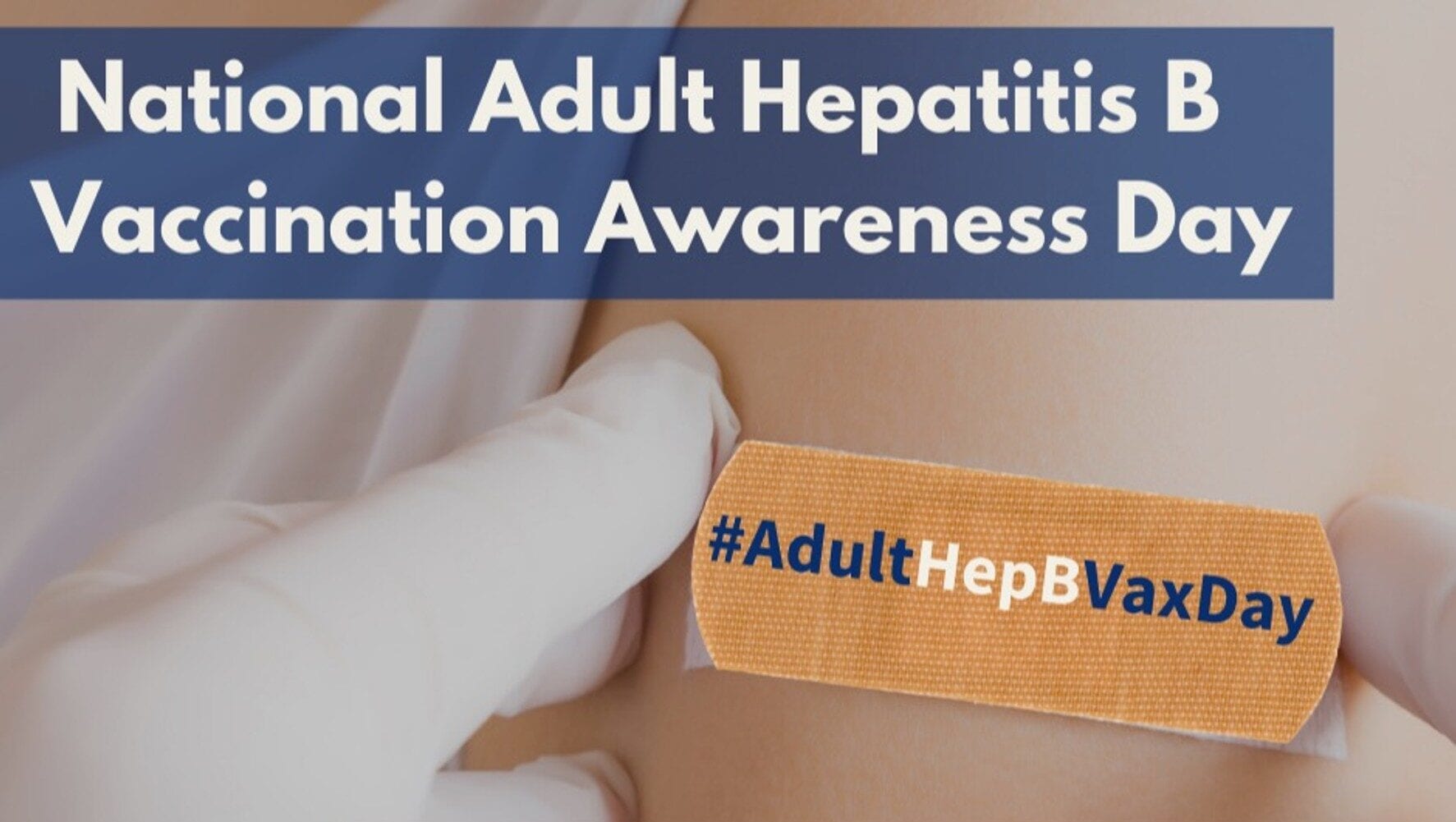A Call to Action on Hepatitis B Vaccines
April 30th is designated as National Adult Hepatitis B Vaccination Awareness Day. Hepatitis B is a liver disease caused by the hepatitis B virus. Some people who become infected can go on to develop a chronic or lifelong infection. Left untreated, chronic hepatitis B can cause serious liver damage, and even liver cancer.
Dr. Baruch Blumberg discovered the hepatitis B virus in 1967 and two years later developed the first hepatitis B vaccine. The hepatitis B vaccine is now almost 50 years old and is widely available and highly effective. However, only a quarter of U.S. adults are vaccinated. HBV infections are mainly found in adults 30-59 years of age who were born before infant/childhood hepatitis B vaccines were widely recommended. Known as a “silent epidemic”, HBV infection is often asymptomatic, undiagnosed and often underreported. For example, although only 3,218 acute HBV infections were reported in 2016, the CDC estimates that 21,000 infections occur each year. The National Foundation for Infectious Diseases (NFID) has released a call to action to encourage at-risk individuals in the United States to get a hepatitis B vaccine.
Infectious and Harmful Nature of Hepatitis B
The CDC reports that hepatitis B is 50 to 100 times more infectious than HIV. The disease can even live outside of the body for over 7 days before causing infection. Around 5% of acute HBV infections developed in adults progress to a chronic infection and this chronic progression of the disease can replicate asymptomatically in the liver for decades. By the time an infected individual becomes aware of the disease, it could have already imposed serious liver damage. As many has 2.2 million people living in the U.S. have chronic HBV and 2/3 of those do not know they are infected. Although a cure for hepatitis B is yet to be discovered, fortunately, we can prevent HBV in U.S. adults through immunization.
Barriers to Vaccination
The hepatitis B vaccine can prevent 95 percent of infections but only 25% of U.S. adults get vaccinated. Incorrect beliefs about vaccine safety and limited awareness of the benefits sometimes deter individuals from pursuing the vaccine. Additionally, limited access to care and competing priorities during healthcare visits impact vaccine access. Those most at-risk may not receive proper recommendation for the vaccine because they are hesitant to admit the two leading risk factors among adults: injection drug use and sexual exposure. Ultimately, awareness and education are crucial for overcoming these barriers and ensuring those at-risk have access to hepatitis B vaccinations.
Call to Action
The National Foundation of Infectious Diseases has proposed a “Call to Action” to achieve high hepatitis B vaccine coverage for adults in the United States. One of the main components of this plan is to educate adults who are most at-risk for the disease about the dangers of hepatitis B to encourage them to get vaccinated. It is important that vaccinations become part of every adult’s routine care. Additionally, “nontraditional” settings should offer hepatitis B vaccines such as community centers, churches, substance abuse treatment programs, and STI clinics. By taking appropriate measures to provide vaccine access to at-risk groups, millions of adults can be protected from hepatitis B.
The full report and call to action from the National Foundation for Infectious Diseases is available here
AVAC Sponsors Virtual Briefing on Hepatitis B
AVAC celebrated National Adult Hepatitis B Vaccination Awareness Day by sponsoring a congressional briefing around “Overcoming Barriers to Adult Hepatitis B Vaccination.” The briefing was hosted by the Hepatitis B Foundation and Hep B United, in partnership with the Association of Asian Pacific Community Health Organizations, Adult Vaccine Access Coalition, National Viral Hepatitis Roundtable, and The AIDS Institute. Panelists for the briefing included experts at the federal, state, and local levels who are working to increase awareness and access to hepatitis B vaccination among adults.
